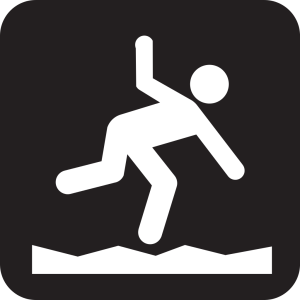Chapter 8: Core and Balance Training Principles
Balance

As an RN on MED floor, Jolene assesses each patient’s fall risk according to the Morse Fall Scale, provide a nursing diagnosis (ND) for fall risk, and implement fall precautions based on the ND. The human body typically operates in many positions that are not very stable and we must constantly use our muscles to adjust our body position and counteract the tendency of our bodies to fall over. We often refer to this skill as balance. For the most part balance is subconscious, but watching a toddler who has just learned to walk will provide an amplified idea of how much actual work is required for humans to stay upright. Toddlers are especially unstable due to their disproportionately massive heads, and after this unit we will understand exactly why that feature so greatly affects their stability.
Additional Resources
Davis, Lawrence. Body Physics: Motion to Metabolism. Open Oregon Educational Resources. https://openoregon.pressbooks.pub/bodyphysics

